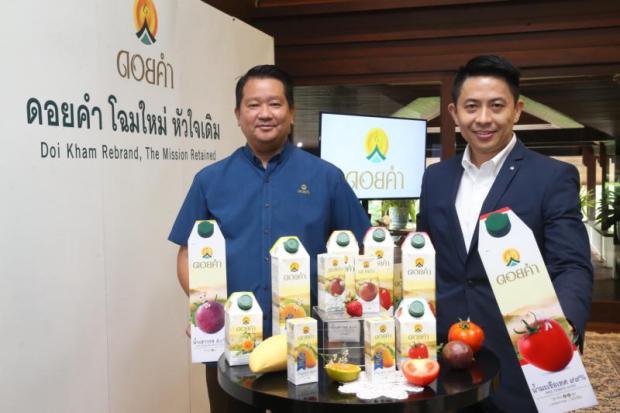
Doi Kham Food Products Co, the maker and distributor of Doi Kham fruit juice and dried fruit, plans to allocate at least 1 billion baht to renovate its factory in Buri Ram province within three years.
Chief operating officer Sorapas Suttienkul said the factory will be used as the production base for Doi Kham fruit juice and dried fruit to serve growing consumption in the domestic market and exports to neighbouring countries later.
The 40-rai factory has been chosen because of its strategic location surrounded by water resources.
Doi Kham has factories in Chiang Rai for producing UHT fruit juice, Chiang Mai for producing drinking water and fruit jam, and Sakon Nakhon for producing tomato juice and some dried fruit. Its Buri Ram factory is currently rented by another company to produce packed rice.
Doi Kham Food Products was set up more than four decades ago to operate business by buying agricultural produce and honey from the Royal Project Foundation and nearby farmers in Chiang Mai at reasonable prices before processing them into fruit juice, jam and dried fruit.
Apart from upgrading its Buri Ram factory, the company has refreshed its brand by changing its logo and packaging to be more modern, said president and chief executive Pipatpong Israsena. The company wants to appeal to more young people.
Doi Kham's sales have grown by 20% over the last four years. Despite the economic slowdown, its sales still rose by 11% in the first half of this year in line with people's greater health awareness.
To respond to growing demand, the company will buy more fruit and agricultural produce from farmers and support them to increase their crop yields.
In addition, it will grow its sales by opening more Doi Kham shops in Bangkok and sell franchise rights to investors to open Krobkrua Doi Kham shops upcountry.
The company now has three Krobkrua Doi Kham shops in Lampang, Khon Kaen and Sakon Nakhon. The company expects to at least open one Krobkrua Doi Kham shop in every province over the next five years. It has three types of Krobkrua Doi Kham shop depending on space and services.
Mr Pipatpong said company executives will travel to Vietnam and Laos next week to study market opportunities in those countries.
Doi Kham products have been exported to Indochina via border trade for a long time. The company will officially expand into the Asean market by appointing sales agents in some countries.
Export sales of Doi Kham now account for about 10% of total sales and are expected to rise to 15% over the next few years.
Its sales in 2015 had a value of 1.48 billion baht, which will rise to 1.8 billion by year-end.